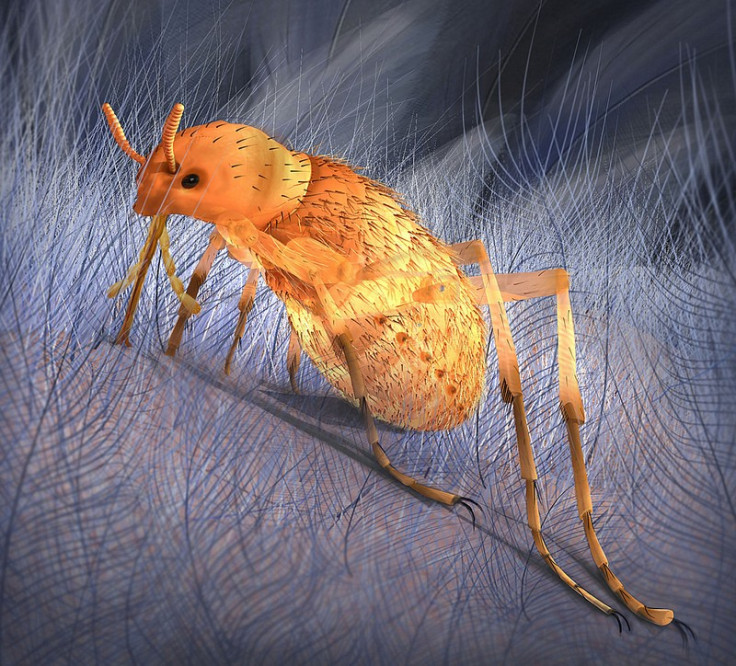Chinese Scientists Discover Fossils of Giant Insects That Sucked Dinosaur Blood

Chinese scientists have discovered fossils of giant flea-like insects that may have sucked dinosaurs' blood. An international team of scientists has found that the insects, also known as Pseudopulex magnus, were probably 10 times the size of a flea that is found in a pet's body. The gigantic flea was found in Inner Mongolia in China.
"These were insects much larger than modern fleas and from the size of their proboscis we can tell they would have been mean," said George Poinar, a professor emeritus of zoology at the Oregon State University, in a statement.
The study claims that even though the fleas look similar they were not identical to modern fleas. They said that the giant fleas belong to a separate and now extinct lineage.
Scientists discovered that the giant fleas' bodies were flatter - like a bedbug or tick - and they had long claws that could reach over scales on the skin of dinosaurs so they could hold onto them tightly while sucking blood. Modern fleas are more laterally compressed and have shorter antennae, and are able to move quickly through the fur or feathers of their victims.
"You wouldn't talk much about the good old days if you got bit by this insect. It would have felt about like a hypodermic needle going in - a flea shot, if not a flu shot. We can be thankful our modern fleas are not nearly this big," said Poinar.
According to the researchers, all the flies feed on warm-blooded vertebrates and today 94 per cent of the 2,300 known species attack mammals, while the remainder feed on birds. They said it is so weird that flea-like animals fed on the softer skin between scales of the dinosaurs.
"These are really well-preserved fossils that give us another glimpse of life into the really distant past, the Cretaceous and Jurassic," said Poinar.
Even though the modern flea was not as gigantic as the giant flea, the modern flea has created plenty of damage. Hardly a dog or cat alive has escaped their attack and they brought mankind such diseases as bubonic plague, which has killed 75 million people, according to a report.
© Copyright IBTimes 2025. All rights reserved.





















